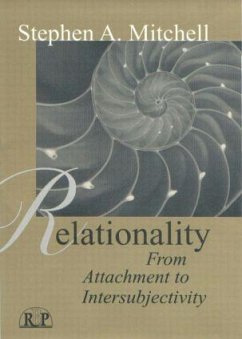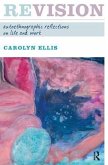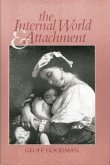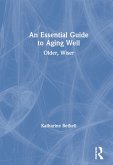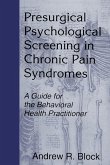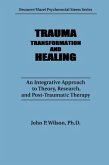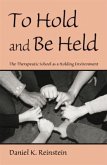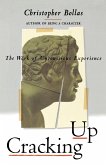In his final contribution to the psychoanalytic literature published two months before his untimely death on December 21, 2000, the late Stephen A. Mitchell provided a brilliant synthesis of the interrelated ideas that hover around, and describe aspects of, the relational matrix of human experience. Relationality charts the emergence of the relational perspective in psychoanalysis by reviewing the contributions of Loewald, Fairbairn, Bowlby, and Sullivan, whose voices converge in apprehending the fundamental relationality of mind. Mitchell draws on the multiple dimensions of attachment, intersubjectivity, and systems theory in espousing a clinical approach equally notable for its responsiveness and responsible restraint. Relationality "signals a new height in Mitchell's always illuminating writing" (Nancy Chodorow) and marks the "coming of age" of the relational perspective in psychoanalysis (Peter Fonagy).
Hinweis: Dieser Artikel kann nur an eine deutsche Lieferadresse ausgeliefert werden.
Hinweis: Dieser Artikel kann nur an eine deutsche Lieferadresse ausgeliefert werden.
'Drawing on the work of Loewald, Fairbairn, and other theorists who deeply inspired him, in Relationality Stephen Mitchell built a compelling vision of human experience that is inextricably embedded in and saturated with the social surround into which we are born and in which we live forever. Mitchell's vivid and compelling clinical vignettes, filled with both his clinical wisdom and his humanity, poignantly illustrate the therapeutic value of his theoretical approach. Written toward the end of Mitchell's life, the book reflects an evolved (and evolving) stage of the integrated relational model that he created. It is essential reading not only for those interested in Mitchell's work, but for anybody who wants to understand how psychoanalysis is developing in the 21st Century.'
Jay Greenberg is training and supervising analyst at the William Alanson White Institute; former editor of The Psychoanalytic Quarterly; recipient of the Mary S. Sigourney Award for Outstanding Achievement in Psychoanalysis (2015)
'Stephen Mitchell's outstanding work challenges and enriches our understandings. His capacious theory dynamically links the major developments within contemporary psychoanalysis. In so doing, he rewrites the canon. An absolute must.'
Susie Orbach is a psychotherapist, psychoanalyst, writer and social critic
'Today, when we take for granted relational psychoanalysis and its wide-ranging impact on all of contemporary psychoanalysis, we also know that imagining relational psychoanalysis without Stephen Mitchell is like imagining psychoanalysis without Freud. Relationality expresses on every page the extraordinary brilliance of Mitchell's mind, as he elaborates upon the prehistory of relational psychoanalysis and its current form, in chapters on Sullivan, attachment theory, Fairbairn, and intersubjectivity theory, the complex strands that helped to form Mitchell's thinking and infuse his clinical work. Mitchell begins with a tribute to Loewald, "From Ghosts to Ancestors: The Psychoanalytic Vision of Hans Loewald." At a Loewald conference, Mitchell and I each found ourselves presenting papers with this same title: "The Psychoanalytic Vision of Hans Loewald." Relationality, we could say, brings us the psychoanalytic vision of Stephen Mitchell. And what a vision!
Nancy J Chodorow, Harvard Medical School/Cambridge Health Alliance, University of California, Berkeley, Boston Psychoanalytic Society and Institute. Author, The Psychoanalytic Ear and the Sociological Eye: Toward an American Independent Tradition, The Power of Feelings, The Reproduction of Mothering, and other works
Jay Greenberg is training and supervising analyst at the William Alanson White Institute; former editor of The Psychoanalytic Quarterly; recipient of the Mary S. Sigourney Award for Outstanding Achievement in Psychoanalysis (2015)
'Stephen Mitchell's outstanding work challenges and enriches our understandings. His capacious theory dynamically links the major developments within contemporary psychoanalysis. In so doing, he rewrites the canon. An absolute must.'
Susie Orbach is a psychotherapist, psychoanalyst, writer and social critic
'Today, when we take for granted relational psychoanalysis and its wide-ranging impact on all of contemporary psychoanalysis, we also know that imagining relational psychoanalysis without Stephen Mitchell is like imagining psychoanalysis without Freud. Relationality expresses on every page the extraordinary brilliance of Mitchell's mind, as he elaborates upon the prehistory of relational psychoanalysis and its current form, in chapters on Sullivan, attachment theory, Fairbairn, and intersubjectivity theory, the complex strands that helped to form Mitchell's thinking and infuse his clinical work. Mitchell begins with a tribute to Loewald, "From Ghosts to Ancestors: The Psychoanalytic Vision of Hans Loewald." At a Loewald conference, Mitchell and I each found ourselves presenting papers with this same title: "The Psychoanalytic Vision of Hans Loewald." Relationality, we could say, brings us the psychoanalytic vision of Stephen Mitchell. And what a vision!
Nancy J Chodorow, Harvard Medical School/Cambridge Health Alliance, University of California, Berkeley, Boston Psychoanalytic Society and Institute. Author, The Psychoanalytic Ear and the Sociological Eye: Toward an American Independent Tradition, The Power of Feelings, The Reproduction of Mothering, and other works

